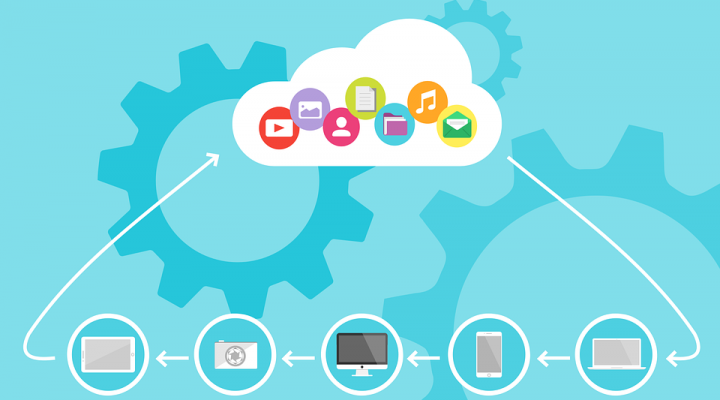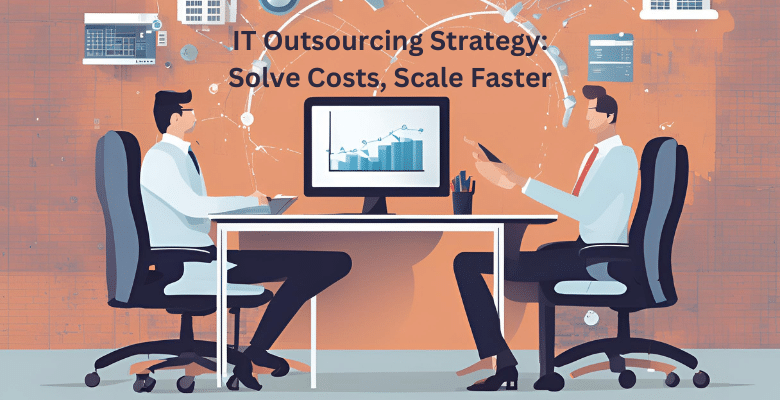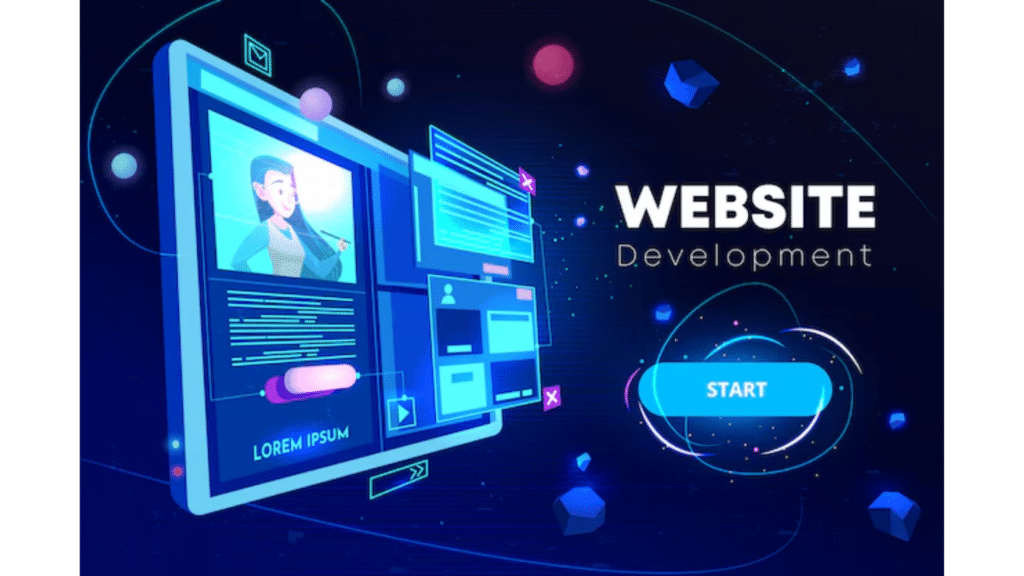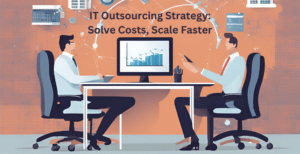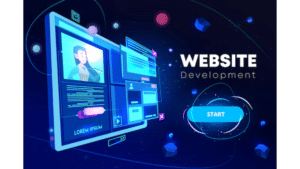Nowadays, we see more and more of Cloud and Software as a Service (SaaS). These two terms are blasting the roof off the IT Industry.
The debate about Cloud VS SaaS starts when you are looking, analyzing, and evaluating various technologies to run your business’s daily activities. During that exploration period, you will find Cloud-based, SaaS, PaaS, IaaS, or hosted.
What do these terms mean? You must know and know using these terms in your daily life to become a necessity for your business in the future.
The similarity in Cloud vs SaaS?
Initially, or you can say at first glance, we might feel that both of these terms, i.e., Cloud Computing and Software as a Service (SaaS), refer to the same thing, meaning that services or products are available through the Cloud.
These two terms specify that the services or products will not be on-ground. Cloud Computing and Software as a Service (SaaS) both describe two very different concepts.
So, firstly, we will understand the individual terminologies behind Cloud Computing and Software as a Service.
Cloud Computing
Once a fascinating technology, now a common one. Cloud Computing is not a new technology or a technology that has yet to grow. It has been a mainstream thing for a long time now. You are a user of this tech daily, even if you are aware of it or not.
You might be familiar with Gartner’s research at a global level on the topic of Cloud Computing. Its research stated that the Cloud services would have grown to almost 18% by the end of the year 2021, and it will rally up to $305 billion almost. Back in 2020, it was nearly $257 billion.
Several very famous applications are Cloud-based. Trello, Nerds Support Cloud, Slack, NetSuite, and Mailchimp are a few Cloud-based applications out there that cannot be beaten and have been here for a long time now.
If we had to explain what a Cloud is? We can easily say that the Cloud can be declared as the internet. For instance, if you are using Cloud-based software, you can use the internet (or ‘Cloud’) to access that software anywhere or anytime as long as you have an internet connection. You can use any platform you want, like a desktop computer, PC, Android Phone, Apple iOS, etc.
Your location also does not matter, and as long as you are connected to the internet, we can say that you are Cloud Computing.
If we place a technical twist on the definition of Cloud Computing, we can say that Cloud Computing is an on-demand availability of resources like:
- Databases
- Networking
- Storage
- Applications
- Server
- Etc
Thus, making data centers available for some users all across the internet.
Furthermore, Cloud Computing is a model that enables convenient network access to a shared pool of configurable computing resources that can be rapidly made accessible, provisioned, and released with a minimum amount of effort or any interaction with the service provider.
Mark Walker, the founder of AWcode, states that Cloud Computing can be understood as if Cloud is made up of effective building blocks that can be used or assigned for a specific task to build infrastructures for hosting any application at a rapid pace. These standardized building blocks can range from servers, databases, load balancers, storage, and much more.
Cloud Computing is a model that has five essential characteristics:
- On-Demand Service
- Resource Pooling
- Rapid Elasticity
- Measured Service
- Broad Network Access
It has four deployment models:
- Private Cloud
- Public Cloud
- Hybrid Cloud
- Community Cloud
Finally, three service models:
- SaaS (Software as a Service)
- PaaS (Platform as a Service)
- IaaS (Infrastructure as a Service)
Overall, you can say that if you require an internet connection to run any service correctly, it can be termed Cloud Computing.
Advantages of Cloud Computing
As per the significant advantages that Cloud Computing offers, we can safely say that Cloud Computing is here to stay.
With the help of Cloud Computing, you don’t need to:
- Maintain
- Upgrade
- Worry
About the security of data, you have on your servers regarding your software applications.
You can have access to your data anywhere, anytime, and whenever you need it.
It is very cost-effective, as you only pay for:
- Renting the space on the host server
- Scaling resources (as per your needs)
Top ranged Cloud Service Providers include:
- Amazon Web Services (AWS)
- Storage
- Amazon’s Global Compute
- Database
- Application
- Analytics
- Deployment Services
- Google Cloud
- Machine Learning
- Google’s Core Infrastructure
- Data Analytics
- IBM Cloud
- Open & Secure Public Cloud
- Hybrid Cloud Platform
- Advanced-Data
- AI Capabilities
- Oracle Cloud Infrastructure (OCI)
- Storages
- Applications
- Services
- Networks
- Servers
- Microsoft Azure
- Open
- Enterprise-Grade Cloud Computing
- Flexible
Software as a Service (SaaS)
SaaS or Software as a Service can be termed a software delivery model that involves licensing a Cloud-based software application to a user.
This application is Cloud-based, so it can only be accessed with the internet. The user does not install and have any software locally.
Furthermore, the application will run on the SaaS provider’s server. Thus they will be fully responsible for:
- Security
- Maintenance
- Performance
In most cases, SaaS applications are licensed based on monthly subscription fee usually depending upon:
- Level of Service needed
- Number of Users needed
Thus, the SaaS provider will deliver their particular application to you over the internet in the form of service and the maintenance of the application.
SaaS is, without any doubt, a part of Cloud Computing. However, you must know that you will not find all of the SaaS models built-in to the Cloud itself. Sometimes, the SaaS products or applications can be constructed on a locally based terminal and then positioned later on to the Cloud server. You can access that application via a web browser of your choice by going online.
We can say that “SaaS is Cloud software, but Cloud software is not all SaaS.” Saas-based products generally are composed of two main attributes:
- The software/application is directly served to you (already hosted, ready to be used, and pre-configured).
You would not have to install anything, and no hardware is required for you to purchase. Also, you will not have to worry about any kinds of backups. - You are not the owner of that software/application. You are a user.
You would be buying a subscription where you can acquire the software’s service by paying a fixed amount every month.
Advantages of SaaS (Software as a Service)
The most significant advantage and known benefits of SaaS (Software as a Service) is its cost-effective style that has real-time access to software and application whenever the user requires it.
Secondly, SaaS can have several users, i.e., more than one user from 10 to 10,000 can access the same SaaS software. As a subscriber of the SaaS software/application, you will not have to worry about server maintenance.
One of the most famous SaaS applications are as follow:
- Grammarly
- A popular Google product that helps you in the correction of the grammar of any article/blog/essay
- Tells plagiarism
- Free initially for the individual user
- Advanced features for subscribed users
- Salesforce
- A very sought-after CRM with access to the internet
- Zoom
- A virtual conference based application that logins via the internet
- Quickbooks Online
- Gives access to your accounting records from all over the world.
So, SaaS is an offshoot (branch) of Cloud Computing that provides a license to access particular software applications through the internet.
Cloud vs SaaS
Now that we have a clear understanding of SaaS and Cloud, we can finally arrive at the Cloud vs SaaS’s debate.
They both are closely related but in non-identical terms.
If you come and take a closer look at SaaS, you pay a fixed subscription fee to get access to a completely developed, functional, Cloud-based web application if you go online, i.e., use the internet. With Cloud Computing, the user will customize and manage the software application on a proper server that some third party like AWS can host. You will be given complete access there.
On SaaS, the responsibility of maintaining the software does not lie upon the user. In contrast to this, with Cloud Computing, the user will keep the software.
One disadvantage that we can pinpoint of SaaS is that you might lose some control over the application as the continuous upgrades in customization and management features.
We here at Bitbytes are a great example of Cloud Computing. We have had our fair share of experience with Cloud Computing and SaaS applications and software. We will provide Cloud-based integration software that will help you connect with retailing systems like eCommerce, POS, and ERP systems.
We can help you develop the right Cloud-based strategy that will fit your needs. You will get:
- Cloud-based Web Apps
- Cloud-based Mobile Apps
- Integrate Enterprise Applications with Cloud Providers
- Migrate Applications from One Cloud to Another.
How Can Cloud Computing Help You Grow Your BUSINESS During These CHALLENGING Times?
Talk To our BitBytes Experts Today About CLOUD-BASED Web & Mobile Apps & Get Professional Consultancy RIGHT NOW!
From all of the discussions that you have read, now you know that SaaS and Cloud Computing work together to bring easy-to-access and cost-effective software programs that you can access from anywhere in the world without any problem.

